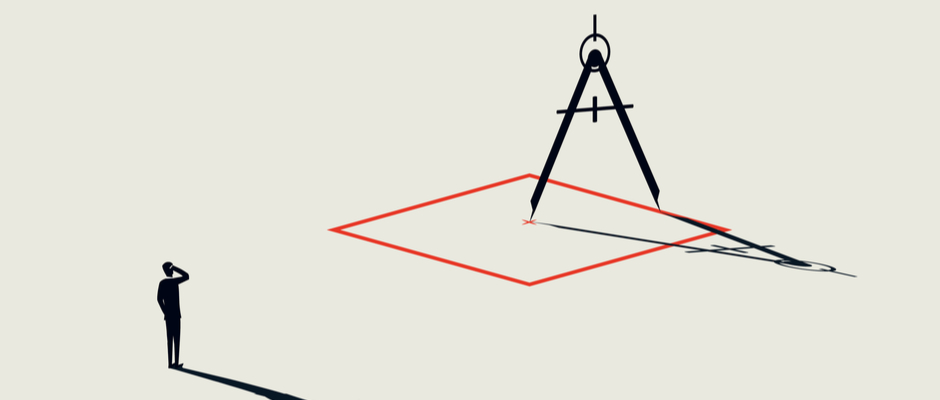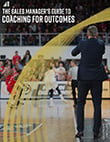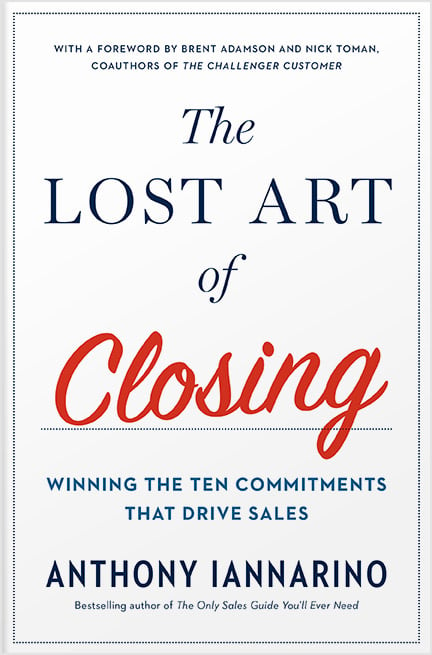The Gist:
- Certain advantages, even temporary ones, can make selling easier.
- It’s a mistake not to recognize how much these advantages contribute to your success in sales.
- The best way to avoid being reliant on ephemeral advantages is to continually improves your sales competencies and skills.
There are a lot of variables to success in sales. Many of them come down to your individual effort—the work you do to create value for your client and create a preference to buy from you—but a few also arise from external variables that normally don’t move the needle much. When these external variables do win a deal for you, though, don’t overestimate your abilities. Often, when you are born on third base, starting with an advantage that creates a large part of your success, moving to a new job will show you just how hard it is to get there on your own.

Right Solution at the Right Time
As the economy continues to change, buyers encounter new problems that require new solutions. There is a first mover advantage for those who are prescient enough to build a solution in front of the trend, positioning themselves for success in sales. While individual salespeople certainly make a difference in the sale of something new, the variable of perfect timing is a tremendous advantage in sales, something that is difficult to recreate in a mature and highly commoditized industry.
In March of 2020, if you were responsible for selling large amounts of hand sanitizer or plastic soap bottles, you would have found yourself in a target-rich environment. In fact, your greatest challenge would probably be keeping enough supplies in stock to fill all your orders. When that initial demand disappeared, however, a tougher challenge emerged: can you keep your success going on your own merits?
It’s only when demand dies down that many sales organizations and their salespeople begin to realize that their growth trajectory was based mainly on that demand, and that any future growth is going to require improving their ability to sell.

Best Possible Offering and Awareness
One salesperson told me an interview that he wanted to sell the best solution, one with such a dominant brand awareness that everyone would want to buy what he would be selling. The job he was not offered would be nothing at all like his dream job. It isn’t very difficult to sell the newest version of the iPhone, even though it is incredibly difficult to sell as many as Tim Cook needs to sell to have a successful product, something Apple does better than anyone.
In a commoditized industry, it is rare for a prospective client to initiate a sale—they don’t need to call you because one of your many competitors is going to call them in the next fourteen minutes. When your phone rings and your prospective client comes to you because they know you are the best in your category, it can cause you to believe that you are better than you are because your conversion rate is high, even though it’s the clients who are doing the work.
You are always better off selling a commodity at the beginning of your career, or perhaps something equally difficult to sell. The challenge of selling in either scenario will improve your ability to sell and accelerate your development as you work to figure out how to succeed.
Little or No Real Competition
If you’re lucky enough to have little or no real competition, recognize that you won’t enjoy that state for very long. When what you sell has not yet been commoditized but still has strong demand, the lack of alternatives makes selling much easier. This can cause some salespeople to believe they are better at sales than they are, an impression they’ll have to correct once the market attracts more competitors and alternatives.
As competition grows and selling gets harder, you must work harder to differentiate yourself meaningfully enough to create a preference to buy from you. As new solutions appear, older solutions are replaced by something different (and sometimes better), especially as technology improves.
Competing in the red ocean requires several rows of sharp teeth and a large and scary dorsal fin. Baby seals don’t get far.

Born on Third Base
Some salespeople insist that they’d “rather be lucky than good.” The problem with this idea is that luck is a fickle and rather sketchy fellow, who can only be counted on to be unreliable and never shows up when you need him most of all. Being good is a more sustainable advantage, even if it takes a lot of effort to improve over time.
When you are lucky enough to find yourself with a hot hand, you need to be smart enough to play that hand well. That starts by recognizing that your advantage is not sustainable and preparing for the inevitable day when selling becomes more challenging—especially when your hockey stick growth chart reverses, flipping the trajectory from up to down.
There is never a reason to not improve your competencies and skills, especially the fundamentals of the sales conversations. Learn to create tangible value though the intangibles, like insights and experience that allow you to transfer your insights to your clients. While being lucky doesn’t require continuous practice, being good means giving yourself over to your craft, by reading, learning, studying, and improving your sales acumen.
Prepare yourself for a future that doesn’t start on third base—because for the rest of your sales career, even getting to first will be a challenge.
Do Good Work:
- Identify the temporary advantages that might provide you with some benefit in sales.
- What would you have to do differently if those advantages disappeared next week, next month, or next year?
- Focus on developing the competencies that will outlast any temporary advantage.










.jpg?width=768&height=994&name=salescall-planner-ebook-v3-1-cover%20(1).jpg)


